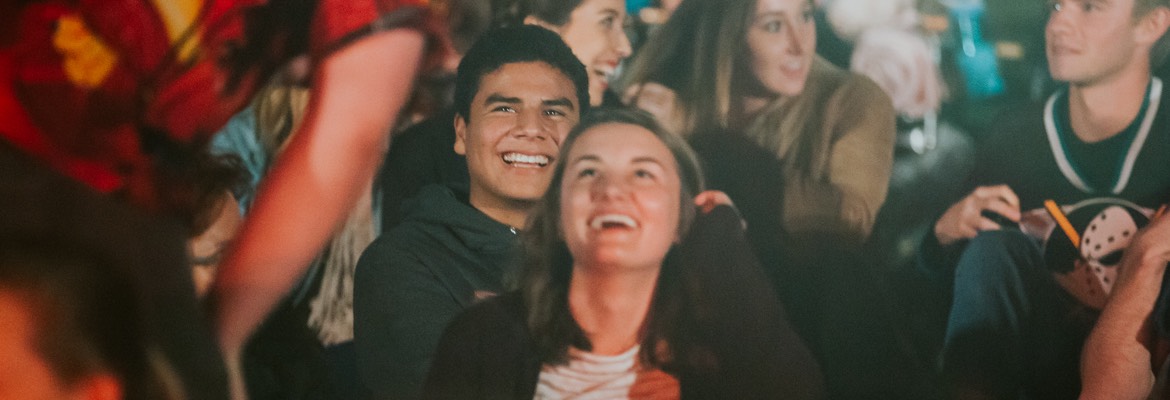Minor in Theatre
School of Fine Arts and Communication

Overview
A minor in theatre requires the completion of 22 credits, including 10 credits of core requirements and 12 credits of electives in specified communication and music courses.
Courses
Below are the course requirements for this academic program. In addition to these program-specific requirements, all majors include Biola's traditional undergraduate core curriculum. For more program details, including a sample course sequence, visit Biola's academic catalog.
Curriculum Requirements
A minor in Theatre requires completion of 22 credits.
| Code | Title | Credits |
|---|---|---|
| Program Courses | ||
| THTR 109 | Production Practicum | 1 |
| THTR 209 | Production Practicum II | 1 |
| THTR 250 | Theatre History I | 3 |
| THTR 264 | Beginning Acting | 3 |
| THTR 309 | Production Practicum III | 1 |
| THTR 409 | Production Practicum IV | 1 |
| Select 12 credits from the following, 8 of which must be upper-division: | 12 | |
| Introduction to Piano | ||
| Voice Class | ||
| Musicianship I | ||
| Voice and Speech for the Actor | ||
| Introduction to Acting | ||
| Makeup for Stage and Screen | ||
| Topics in Theatre | ||
| Costume Study and Construction | ||
| Intro to Technical Theatre | ||
| Dance for Musical Theatre | ||
| Lighting and Sound for Theatre | ||
| Intermediate Acting | ||
| Stage Managing and Directing Theatre | ||
| Dramatic Theory and Criticism | ||
| Stagecraft | ||
| Playwriting for Performance | ||
| Theatre Internship | ||
| Advanced Acting Workshop | ||
| London Theatre Study Tour | ||
| Total Credits | 22 | |
22
Total Credits
Every program at Biola University features rigorous academics, biblically integrated curriculum and vocational preparation.
WSCUC
Accreditation
Biola University is accredited by the WASC Senior College and University Commission. Additional accreditations may apply to specific programs.
You may also be interested in
B.A. in Cinema and Media Arts
Snyder School of Cinema and Media Arts
B.A. in English
School of Humanities and Social Sciences
B.A. in Theatre
School of Fine Arts and Communication
B.F.A. in Art
School of Fine Arts and Communication
B.M. in Music Performance
School of Fine Arts and Communication
B.M. in Music Teacher Preparation
School of Fine Arts and Communication
B.S. in Art
School of Fine Arts and Communication
Minor in Elementary Education
School of Education
Minor in Music
School of Fine Arts and Communication
Minor in Secondary Education
School of Education